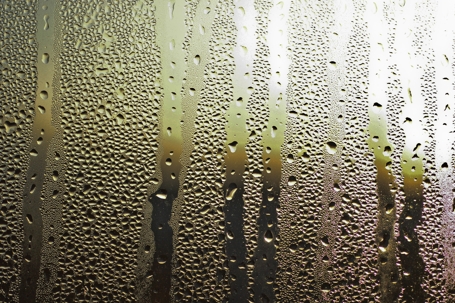Why Does My House Feel So Humid?
High humidity levels in your home can be uncomfortable and even detrimental to your health. It can also cause a whole host of problems in your home. It can make you feel sweaty and uncomfortable, especially during the summer months. More importantly, excess moisture creates a breeding ground for mold and mildew growth, which can trigger allergies and respiratory problems. Additionally, high humidity can damage your belongings, warping wood furniture and peeling paint. By maintaining a comfortable humidity level, you'll breathe easier, protect your home, and feel more comfortable year-round.
Understanding the causes of high humidity is the first step toward effectively managing and resolving this issue. Here are five common causes of high indoor humidity to watch out for.
Common Causes of High Indoor Humidity
1. Inadequate Ventilation
Poor ventilation is a leading cause of high humidity in homes. When your home lacks proper airflow, moisture from daily activities such as cooking, showering, and even breathing can accumulate and contribute to high humidity levels.
To combat this issue, ensure proper ventilation by:
- Installing exhaust fans in kitchens and bathrooms
- Opening windows and utilizing cross-ventilation techniques
- Considering the use of dehumidifiers in particularly humid areas
Once you address inadequate ventilation, you might notice an improvement. If not, chances are one of the following factors may be contributing to high humidity in your home.
2. Leaks & Water Intrusion
Water leaks, whether from plumbing issues or roof leaks, can introduce excessive moisture into your home. This moisture can quickly lead to high humidity levels if not addressed promptly.
To prevent and resolve leaks:
- Regularly inspect your home for signs of water damage
- Repair any leaks in pipes, faucets, or the roof
- Ensure proper drainage around your home's foundation
3. Improper Insulation
Inadequate insulation can contribute to high humidity levels by allowing warm, moist air from the outside to seep into your home.
To improve insulation and reduce humidity:
- Seal gaps and cracks in windows, doors, and walls
- Consider adding insulation to your attic and walls
- Invest in energy-efficient windows and doors
4. Oversized Air Conditioning System
An oversized air conditioning system can cool your home too quickly, resulting in short cycles that do not effectively remove moisture from the air.
To address this issue, consult with an HVAC professional to determine the appropriate size for your AC system. You may also want to consider upgrading to a properly sized and energy-efficient HVAC system.
5. Lifestyle Factors
Our daily activities can also contribute to high humidity levels. To manage humidity effectively:
- Use lids while cooking to minimize steam
- Hang wet clothes outside or in well-ventilated areas
- Limit the use of humidifiers
Dealing with a Humid Home? Get Help Now!
Addressing these common causes of high humidity in your home, you can create a healthier and more comfortable living environment. But if you continue to experience high humidity despite implementing these tips, it may be time to seek professional assistance.
At Bay Heating & Air Conditioning, we specialize in identifying and resolving humidity issues in homes. Our team of experienced HVAC technicians can assess your home's unique situation and recommend the most effective solutions.
Contact us today to schedule a consultation!

